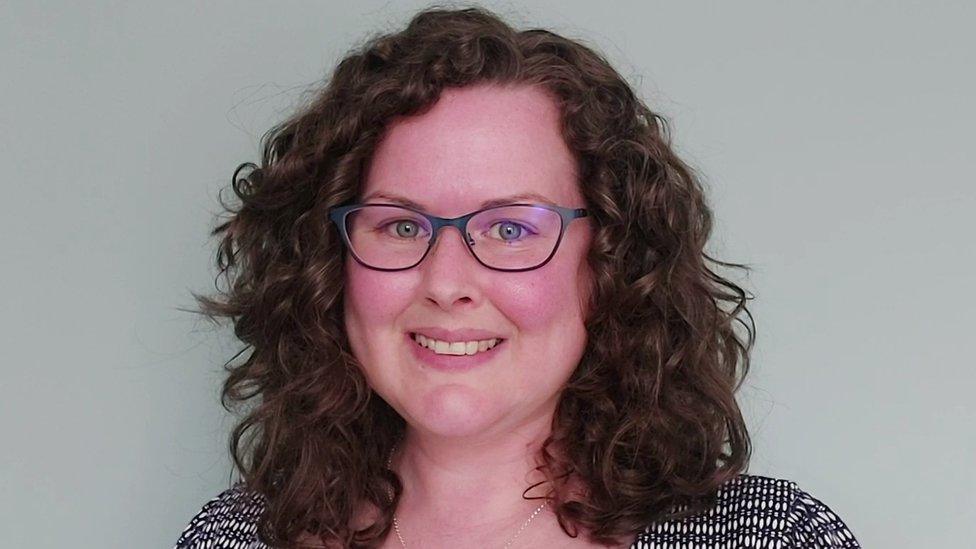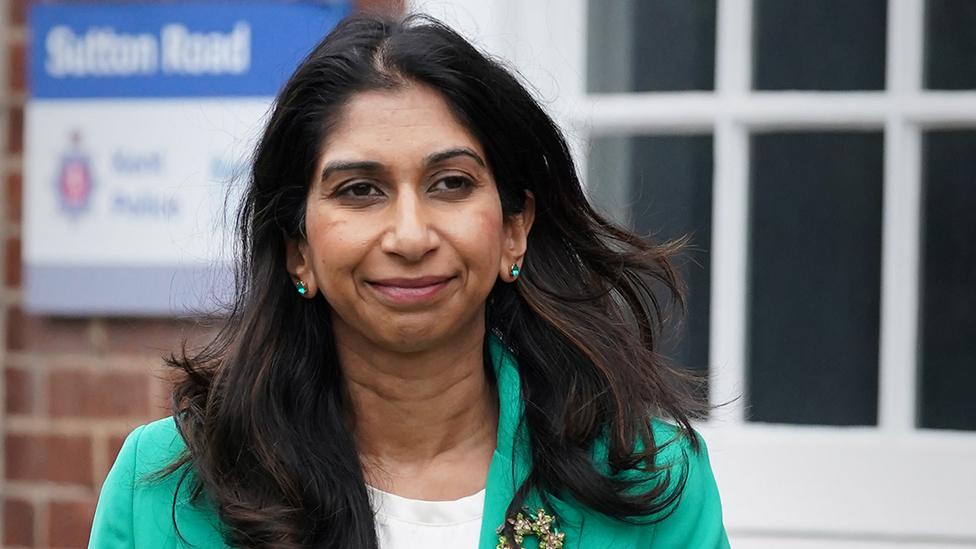Abuse survivor's fears on Facebook encryption plan
- Published

Rhiannon-Faye McDonald said child sexual abuse survivors would feel "devastated" by the change
A child sex abuse survivor has urged Facebook's owner to ensure illegal images can still be detected when new privacy controls are rolled out.
Rhiannon-Faye McDonald, from North Yorkshire charity the Marie Collins Foundation, was abused when she was 13.
She said Meta's plans to tighten secrecy for messages sent on Facebook and Instagram would make it harder for child abuse to be uncovered.
A spokesperson for the firm said it had measures to "detect and combat abuse".
End-to-end encryption (E2EE) stops anyone but the sender and recipient reading the message.
Ms McDonald said she was "devastated" as she believed the change could prevent child abuse from being reported.

Protecting messages with end-to-end-encryption would mean that they could only be read by sender and recipient
Ms McDonald, who is now head of advocacy at the sexual abuse support charity, was contacted by her abuser online when she was a child before she was abused in person.
She said: "There are images of my sexual abuse that exist. I don't know who has seen them or who might see them in the future, I have no control.
"We have technology to detect those images of known child sexual abuse and to have them removed from social media platforms and that brings me some comfort."
'David and Goliath'
But she said Meta's plan to introduce end-to-end encryption could stop that technology from being used.
"It's devastating to me to know that my images could circulate on those platforms without being detected and removed," she said.
"I think many survivors in my position would feel the same."
Pleading with a company as big as Meta felt like a "David and Goliath" battle said Ms McDonald.
But she said the charity was "hopeful" that the company would listen.
A Meta spokesperson said: "We don't think people want us reading their private messages so have spent the last five years developing robust safety measures to prevent, detect and combat abuse while maintaining online security.
"We recently published an updated report setting out these measures, such as restricting people over 19 from messaging teens who don't follow them and using technology to identify and take action against malicious behaviour."
They said the company expected to "continue providing more reports to law enforcement than our peers due to our industry leading work on keeping people safe".

Follow BBC Yorkshire on Facebook, external, X (formerly Twitter), external and Instagram, external. Send your story ideas to yorkslincs.news@bbc.co.uk, external.
Related topics
- Published20 September 2023

- Published24 May 2023
